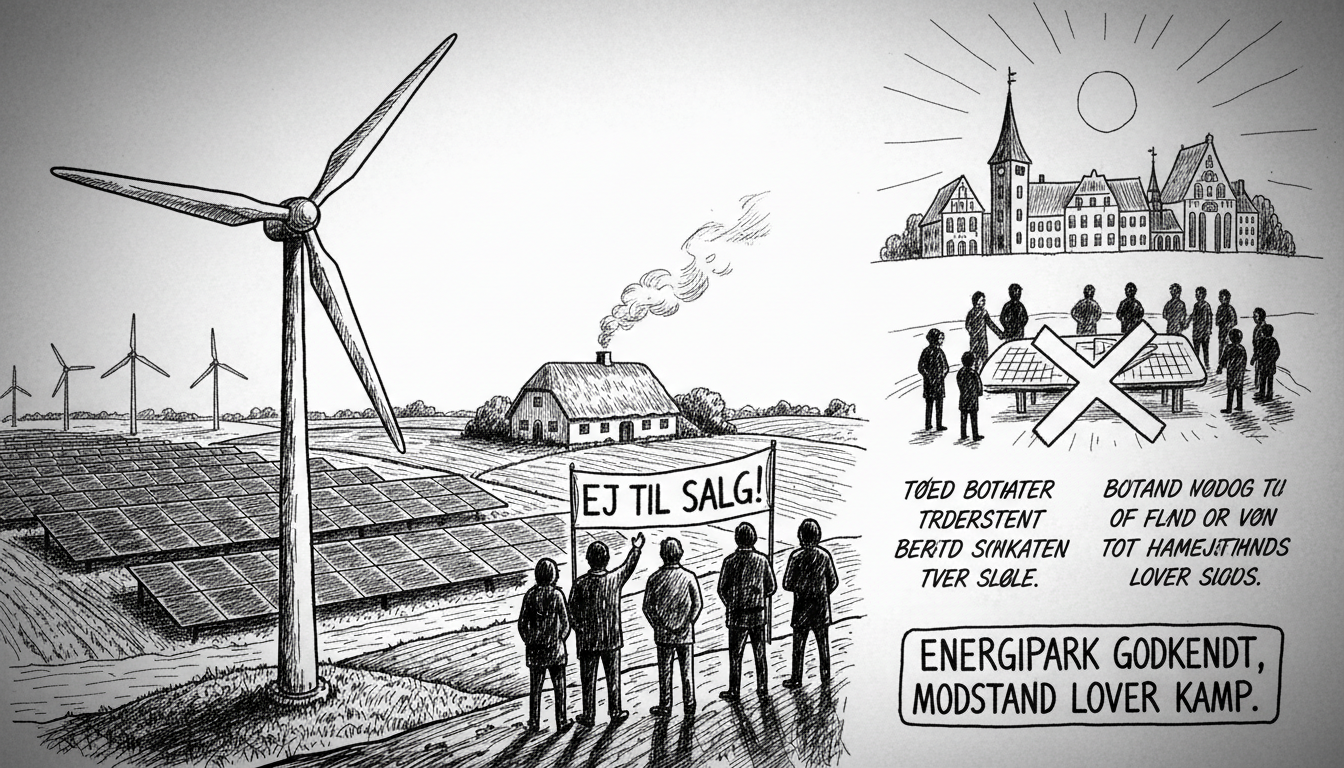Residents of Revsing in Vejen Municipality face a transformed landscape from their living room windows. A united municipal council has approved plans to convert surrounding fields into a major energy park featuring solar panels and wind turbines. This development threatens to disrupt daily life for more than 100 households.
John Hansen and his wife built their home thirteen years ago intending to live there permanently. The new energy park could now force them to relocate. "It has caused sleepless nights. Our future is being ruined," Hansen said.
The upcoming municipal elections offer residents some hope. The Denmark Democrats party stands ready to block the energy park if they gain sufficient votes. Party lead candidate Jonas Lee Jeppesen stated their position clearly. "We will do everything possible to stop this. People move to the countryside to see grain fields and nature, not to look at solar panel parks. By pushing this through, they are burying people's dreams.
Allan Thomsen from the Socialist People's Party has worked to advance the Revsing energy park. He dismisses the Denmark Democrats' characterization of the situation. "I find it difficult to take seriously. They make it sound like the municipality is swooping in to forcibly relocate people and install solar panels, but that's not what the municipality is doing," Thomsen countered.
The debate centers on alternative locations for renewable energy infrastructure. Jeppesen argues solar panels should be installed on municipal building roofs instead. Thomsen calls this proposal pure election rhetoric. "It's symbolic politics. The total roof space we have amounts to a few hectares, so it won't make any difference. Additionally, we must acknowledge that far from all municipal buildings are constructed to support solar panels," Thomsen explained.
This conflict reflects broader tensions across Denmark as municipalities balance climate goals with local community interests. The push for renewable energy often clashes with rural residents' quality of life concerns. Similar disputes have emerged in other Danish municipalities facing large-scale energy projects.
Potential neighbor Pernille Hahn-Ditlevsen and her family of four remain undecided about their votes. The parties' positions on the energy park will determine their choice. "I will vote for someone who opposes this project and has concrete proposals for how to stop it, not just empty words," Hahn-Ditlevsen stated.
The political reality remains that no final decision has been made. "As long as there's no local zoning plan and nothing is finalized regarding this energy park, there's still something to fight for," she added.
The newly elected municipal council will vote on the local zoning plan for the energy park. If approved, the municipality will appoint a project developer to create final placement plans. This timeline gives opponents a narrow window to influence the outcome through the electoral process.
Local energy projects increasingly become political battlegrounds in Danish municipal elections. The Revsing case demonstrates how national climate targets translate into concrete local conflicts. The outcome could set precedents for similar debates across rural Denmark.

